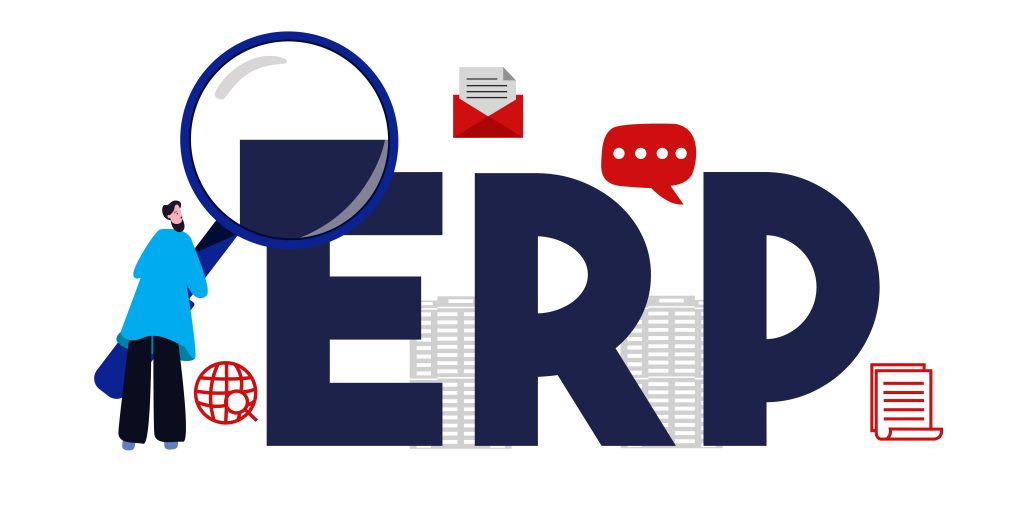This post explains why establishing clear processes and workflows is critical to successfully implementing a new enterprise solution.
Does this sound familiar?:
- You have multiple legacy business systems that are slow and ineffective
- Outputs and decisions are affected by bottlenecks, delays and information silos
- Customer service is suffering due to errors and poor communication
Sometimes, the need for a new approach is obvious. Updating the software you use to run your business seems like an obvious place to start. However, hastily adopting technology out of frustration with the status quo can lead to disappointment.
Modern Enterprise Resource Planning (ERP) solutions are powerful and intelligent—but without clear business structures and processes in place, implementing an ERP solution will be more difficult, costly and time-consuming.
Before you rush to implement an ERP system, it’s helpful to step back and evaluate the way that processes, responsibilities and workflows are managed within your workplace.
Process design helps make way for better systems
Technology is a tool, not an endpoint. Technology allows you to carry out particular activities—it is less successful at determining if those activities are necessary – although we are seeing advancements in AI technology that might close that gap.
Businesses develop processes and procedures to bring structure to activities that need to occur in order to achieve the business’ goals. A structured approach improves clarity, consistency and consensus across your organisation about the best way to do things.
Author of best-selling business book Atomic Habits, James Clear, wrote recently that while it may seem counter-intuitive to focus on process when the world is driven by results—there’s a good reason to do so.
“Yes, results do matter. But if you optimize for the outcome, you win one time. If you optimize for a process that leads to great outcomes, you can win again and again,” Clear said.
Not all processes are structured, and that’s OK. Some tasks are low risk or highly intuitive and formally mapping out each step would be overkill.
But other processes are critical to your success, and you’ll lose business if they’re poorly carried out. For instance, when a customer returns an item that’s under warranty. If you don’t manage returns and repairs efficiently—every time—you risk a negative customer experience, poor reviews and loss of repeat sales.
Firm up processes to improve ROI from enterprise systems
One of the most common reasons that businesses leave value on the table when they introduce a new enterprise solution is a lack of business process design or re-engineering.
It’s almost impossible to set up automated processes when your business can’t clearly articulate the data, workflows, tasks and roles that are involved. That makes configuring the software challenging.
Developing, documenting, and improving processes requires an understanding of why certain activities matter, and what resources, conditions and steps are required to complete them.
If that understanding is missing—overlaying an ERP solution won’t change anything, and it won’t empower your team to work faster or smarter.
If key processes are undefined and undocumented:
- It will be harder to compare functionality, select software and evaluate proposals
- You won’t get the best value from your ERP implementation partner
- You’ll be at increased risk of time and budget blowouts
- Workflows, automation, and reporting may not match business requirements
- Employees may not value or successfully use the new systems
Worst of all— you run the risk that you’ll introduce new software without solving the business challenges that led you to explore an enterprise solution in the first place.
How to improve your readiness to implement an ERP?
Major organisational changes require work and planning. If you’re unsure whether your processes are well-defined enough to fully benefit from a new enterprise solution, it helps to find a partner that understands the risks and can work with you to address them.
Leverage Technologies are Australia’s ERP implementation specialists— we support leading solutions: MYOB Acumatica(formerly MYOB Advanced), SAP Business One, and Sage X3. But in addition to our technical and project management skills, we’re truly across the complexities of business management.
We have more than a decade of experience in consulting with organisations undertaking a digital transformation: we know what’s needed to reach a good position to implement an ERP solution.
We can conduct a Requirements Analysis to help you unearth processes and mechanisms, and associated data and workflows, that might need attention.
Benefit from our consulting expertise to get a sense of:
- Important processes that need to be defined and documented
- Processes that are ineffective or not followed that may need to be re-engineered
- Unstructured activities that are not essential and can be tweaked during implementation
By drawing on our industry knowledge and experience gained from hundreds of successful ERP implementations, you’ll gain an understanding of how much work is needed to get your processes in order.
From there, you might be able to refine and capture processes using your own internal resources. Or you may decide you need further advice from a specialist business process consultant—in which case we can put you in touch with relevant people.
Changing systems is an ideal time to revisit processes
If ineffective processes are one of the root causes of inefficiency across your business, you’ll save time and money by fixing them before you adopt a new ERP solution.
Of course, most organisations probably have some processes that are outdated or unreliable. Rest assured that when you work with us to update your legacy systems or switch to a new enterprise solution, we will consult with you every step of the way.
A core aspect of the service we provide is guidance, support and collaboratively finding solutions that meet your specific needs. That inevitably involves some time spent on tweaking processes during the implementation.
Before you launch into the process of looking for a new business process management system, reflect on the quality of your processes or have a no-obligation chat with our team. Call 1300 045 046 or email info@leveragetech.com.au.

